Back to school: Are you KCSIE ready?
_1000.png)
This blog is based on Judicium’s Safeguarding - Back to school: Are you KCSIE ready? sofa session from 10th September with our Head of safeguarding, Kate Massey. In this session we take a look at the key updates for KCSIE 2025, and how best to prepare for the start of the new academic year.
Poll 1
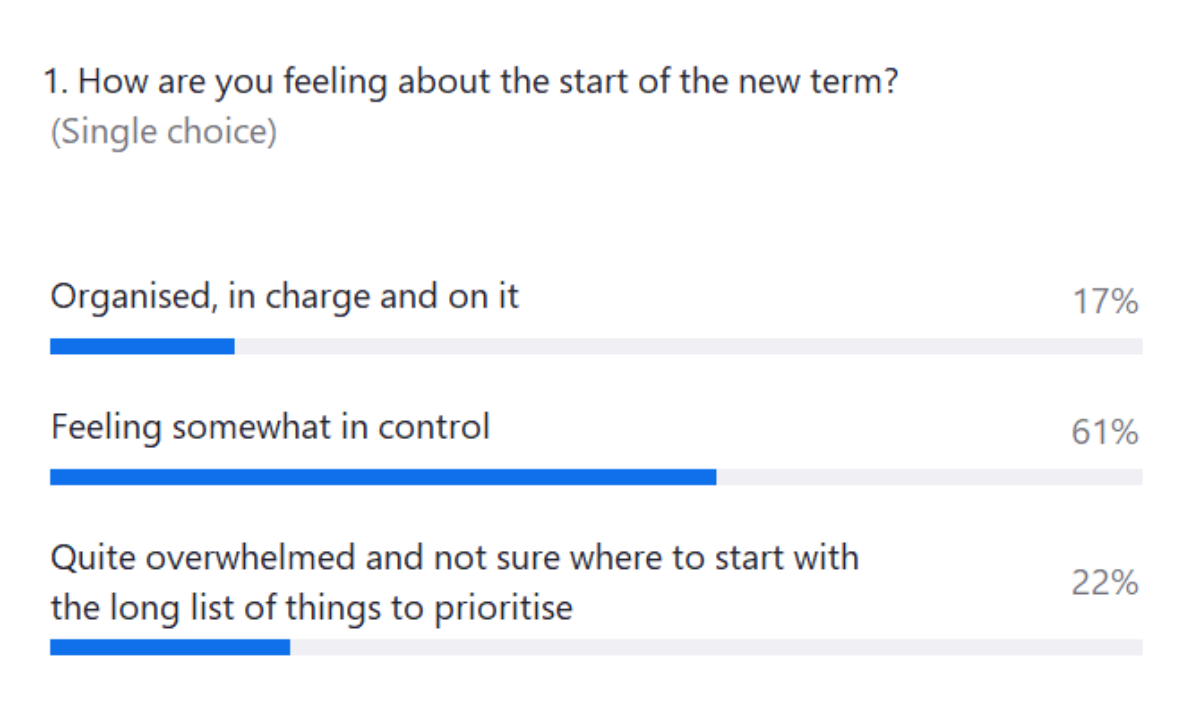
September is probably one of, if not the most, busy in the academic year. There are lots of operational tasks, alongside the drive to begin the year through a strategic lens and another round of updates to the legislation to get your head around.
Keeping Children Safe in Education (KSCIE) - What changed in 2024?
The definition of ‘safeguarding and promoting the welfare of children’ was updated to align with Working Together to Safeguard Children (2023). This saw the inclusion of providing support as soon as problems emerge and protecting children from maltreatment, inside and outside the home, including online. This was designed to focus professionals on the importance of Early Help and extra-familial harm.
As KCSIE 2024 saw an intense focus on Early Help and intervention, it also included additional students that may benefit from it, which included children who frequently go missing from home, care or education (including students who have absence patterns, part-days etc), have a parent or carer who is offending or in custody and children who have experienced multiple suspensions or are at risk of being permanently excluded.
What is the intended link between highlighting those types of pupils and Early Help?
Many schools will be implementing Early Help initiatives where they are concerned about a child or family. Still, the guidance is likely targeting specific types of children who schools may overlook, given the numerous vulnerabilities, or, as recent data suggests, the need for support in these areas. From the audits we have conducted, we see lots of schools delivering Early Help, but staff don’t necessarily understand their role or see the work they do as Early Help. Celebrating this work is something that helps understanding and boosts morale!
Similarly, the 2024 guidance also included some changes to references to abuse and neglect and exploitation. Exploitation is a fast-growing risk and concern for children, particularly with the internet and social media, so professionals are encouraged to think of exploitation as just as prevalent and harmful as other types of abuse. The 2025 Casey Audit has also highlighted that previously, there has been adultification of victims who have received a criminal justice response instead of a safeguarding one. By aligning exploitation with abuse and neglect, the intention is to avoid seeing children who are exploited as anything other than victims.
What is Adultification?
Adultification refers to a bias where children are perceived as more mature, responsible, or resilient than they actually are. This perception means they are not afforded the same innocence and vulnerability as other children and, as such, receive reduced safeguarding responses, more punitive approaches and have an increased risk of harm.
The definition of abuse now includes harm caused by children witnessing the ill-treatment of others, particularly in cases of domestic abuse. We’re now aware that children are victims in their own right. The terminology has also been updated, with ‘deliberately missing education’ changed to ‘unexplainable and/or persistent absences.’
Additionally, schools are directed to child-friendly guides for pupils involved in the court system. The last couple of updates were related to Alternative Provision and schools understanding that they are responsible for the safeguarding of that child while they are on site at an AP.
Record-keeping also received an update in 2024, as the DfE included recording rationale for decisions made as an expectation. While the guidance is clear on what schools should do, based on our knowledge gained through audits, recording the rationale for decision-making is one area that schools are not doing as consistently as other things.
Areas include:
-
There are often a large number of safeguarding cases and records to manage.
-
DSLs (Designated Safeguarding Leads) and DDSLs (Deputy DSLs) frequently have discussions to weigh up risk and decide on actions.
-
Miss recording of those decision-making discussions.
Poll 2
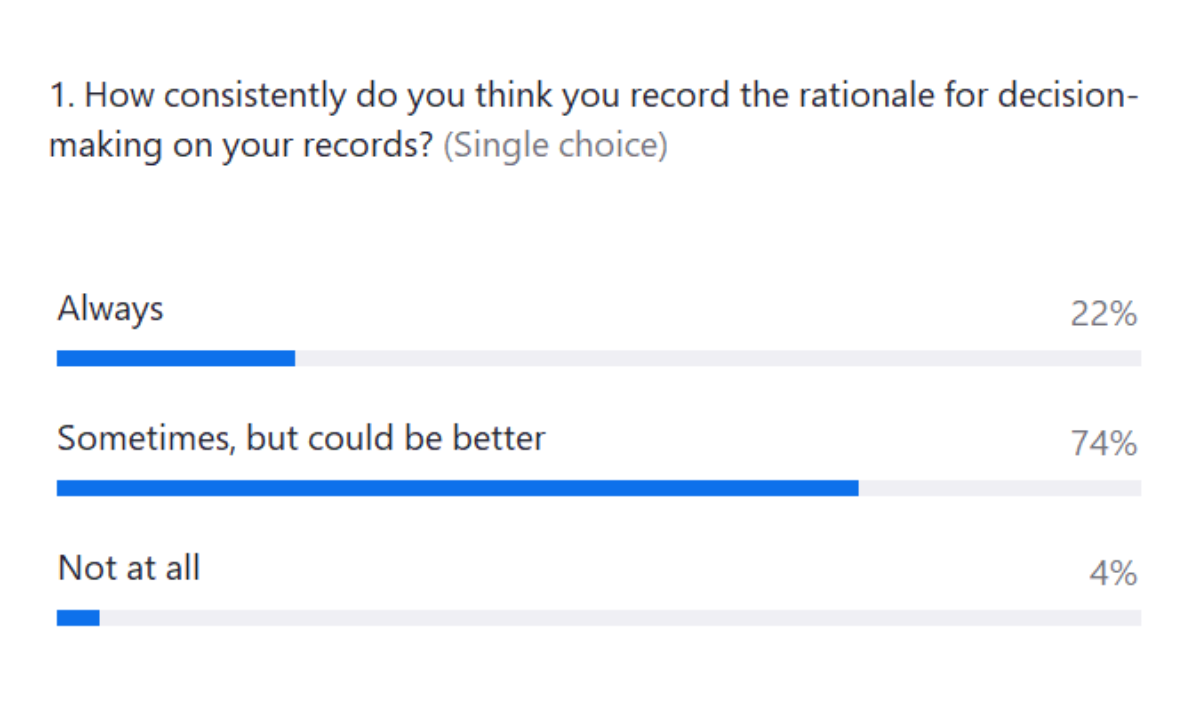
Once it is embedded as part of your practice, it tends to happen more consistently. It also relies on DSL upskilling their team, as any of their DDSLs may also be responsible for recording decisions. It is worth the invested time and will really take your record-keeping to the highest standards. We also found through our Safeguarding Survey that DSL’s felt confident about their own record-keeping but less so about their DDSL’s. KCSIE 2025 refers more to rationale in Annex C - "to be able to keep detailed, accurate, secure written records of all concerns, discussions and decisions made including the rationale for those decisions. This should include instances where referrals were or were not made to another agency such as LA children’s social care or the Prevent program etc,"
Best practice in Schools and MATs
The benefit of the work we do with schools and MATs and the reach we have is that we see many examples of best practice that we share across our client base to support everyone’s development.
- Solid Early Help processes exist within schools - Some schools are engaging families with external services both inside and outside their buildings, such as housing support and family therapy. Schools are acting as the lead professional and coordinating meetings with other professionals and agencies, which include a plan that has SMART targets, which are regularly reviewed, and progress is evidenced.
- Robust attendance procedures - Proactive response from the initial period of absence, planned home visits, escalated procedures for vulnerable students, thresholds and automated processes and bespoke plans and support for children who are struggling to attend school due to health or SEND needs. That being said, one common concern that leaders raise through supervision, is managing persistent or severe absence. People have been able to problem-solve regarding this through our supervision service.
- Alternative Provision – Although this is a requirement rather than best practice, we have found that a lot of schools understand this and have robust arrangements, including reviewing safeguarding policies, receiving a letter of assurance for pre-employment checks and training, visiting the site, scheduling review meetings and planned visits on site, and conducting a basic review/audit of safeguarding processes
- Record Keeping - We have seen some excellent record-keeping which included the rationale of decisions made, why a referral was not made, a summary of why that was decided was seen on the records, or if someone did something else other than advice given, the reason for that was recorded, if a referral was not made, including what has been put in place instead.
KCSIE 2025 Updates
“Whilst there are only technical changes to KCSIE 2025, future iterations will reflect the progress into legislation of the Children's Wellbeing and Schools Bill, the emerging further learnings from the work of the recent Casey Audit and subsequent inquiries, the Violence Against Women and Girls strategy and the interactions between these advances", (DfE KCSIE 2025).
RHSE Guidance
There was reference to both the relationships, sex and health education guidance, (RHSE) and gender questioning guidance. RHSE has been released for statutory implementation for September 2026, and the gender questioning guidance is yet to be released. Schools will need to be across the RSE guidance and begin to look at where, and how they will implement the changes this academic year, to ensure they are compliant from September 2026.
There are lots of specific updates, so leaders will need to read the guidance, but it includes new topics such as AI chatbots, sextortion, vaping, addressing contemporary challenges like misinformation, gambling and misogyny and more advice on teaching sensitive issues such as suicide prevention, eating disorders and self-harm.
What has changed?
It added misinformation, disinformation (including fake news) and conspiracy theories to the list of content risks within online safety.
Disinformation is the deliberate creation and spread of false or misleading content, such as fake news.
Misinformation refers to the unintentional spread of false or misleading content.
Also in the online safety space was a link to the DfE guidance, Generative AI: product safety expectations. This guidance on generative artificial intelligence (AI) explains how filtering and monitoring requirements apply to the use of generative AI in education and supports schools to use generative AI safely.
The updated guidance provides additional information to clarify and reflect existing alternative provision guidance, highlighting how schools should:
- Written information on arrangements to minimise risk - For example, if the AP plans to take the student on a trip off-site, or to a location that the school would deem a risk to that particular child
- Have records of the address of the alternative provider - Or any subcontracted provision or satellite sites the child may attend.
- Regularly review alternative provision placements - Make sure the placement continues to be safe and meets the child’s needs. If safeguarding concerns occur, the placement should be immediately reviewed and ended if necessary.
A few additional minor updates include the DfE’s Working Together to Improve School Attendance, which is now statutory guidance, and the role of Virtual School Head, which contains a non-statutory responsibility to promote the educational achievement of all children in kinship care. This has actually been the case since September 2024, but was directed after the release of KCSIE 2024.
Clients can access a risk assessment for AP as part of their contract. We are here to make DSL’s lives easier and find as many ways to do so! For non-clients, consider what risk assessments you might need to put in place for children in AP, to ensure they’re adequately safeguarded.
Poll 3
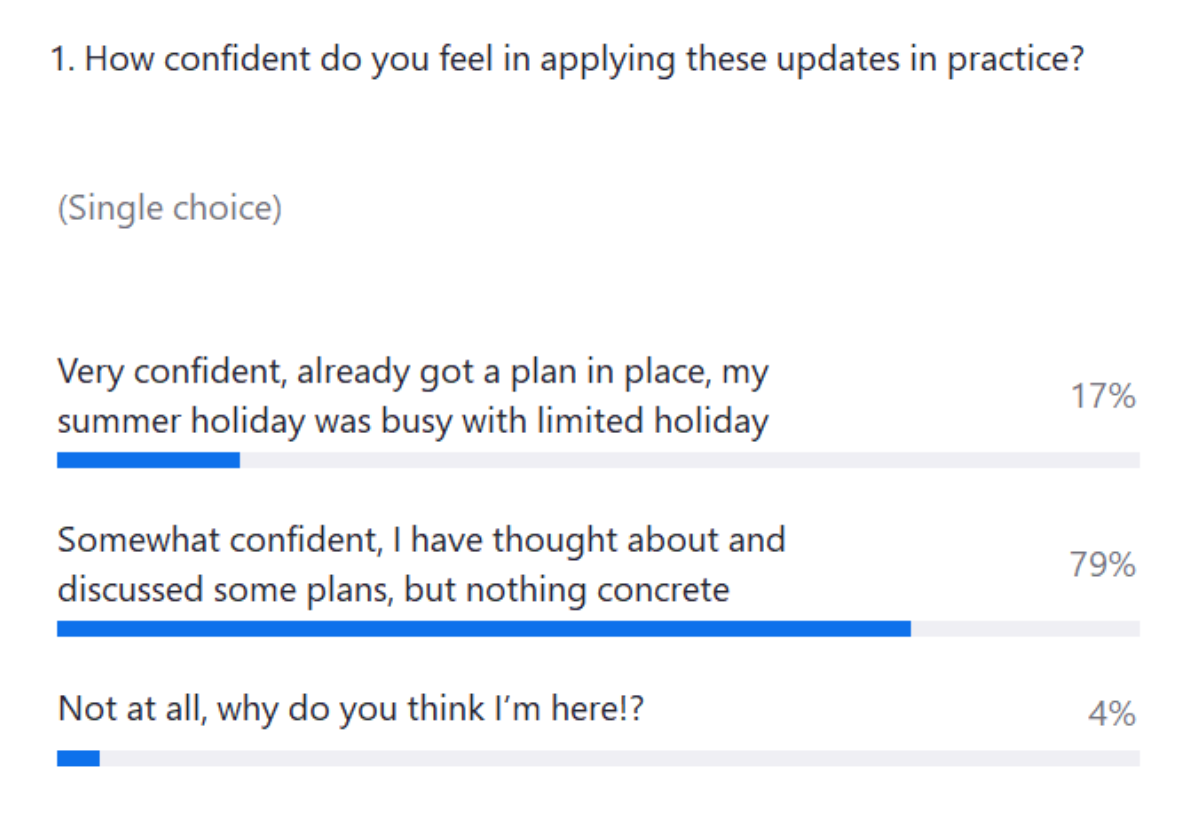
Turning Policy into Action
In terms of what these updates look like in practice, here are some suggestions for schools to consider:
- Review the Online Safety curriculum - Ensure it includes age and stage-appropriate education on content, including misinformation, disinformation, fake news and conspiracy theories.
- Review the Filtering and Monitoring system - Ensure it is either blocking access to AI tools and products if students should not be using them, or filtering and monitoring those that the school grants access to.
- Review and plan for the statutory changes to the RSE curriculum in 2026.
- Review processes and procedures for Alternative Provision - Ensure that, at the very least, the suggestions made in KCSIE are in place.
- Watch out for the Gender Questioning guidance - How this impacts policies and processes that currently exist.
- Child Protection Policy and Online Safety are up-to-date - Incorporate the relevant updates and that any processes or procedures are updated as a result of the changes, and that these changes are reflected in the applicable policies too.
This is a hectic time for DSL’s and leaders, with many different things to consider and update. The start of the school year brings changes in staff and students, which in turn generate numerous operational tasks and duties. This can be really difficult, particularly in smaller schools where DSL’s wear many hats.
Poll 4
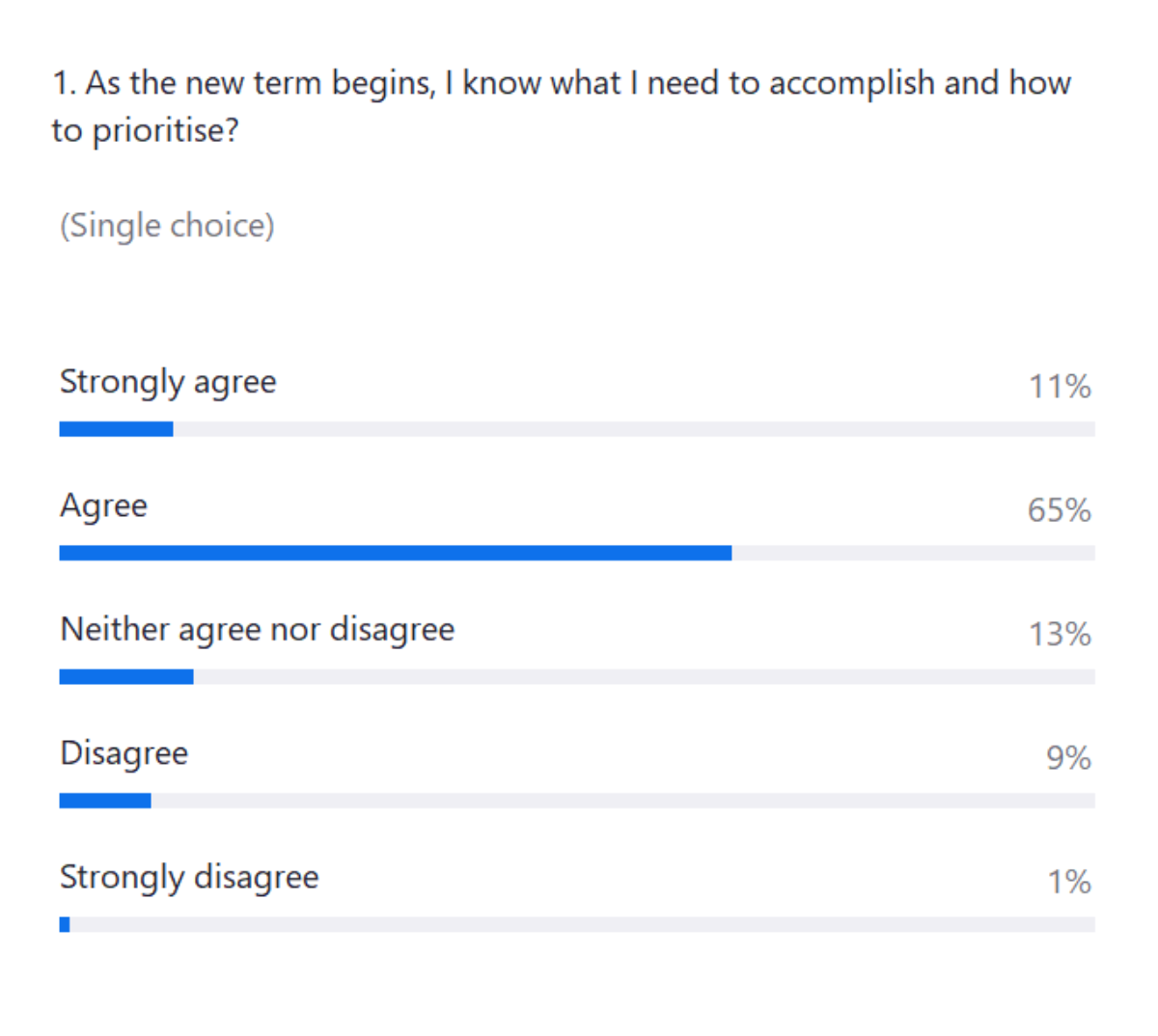
Key Priorities
Some items will relate specifically to a school’s context; however, it is a good starting point for identifying what needs to be achieved. These priorities do not have to be completed by the DSL alone. Fluid communication should be had between the DSL and DDSLs, senior leaders on managing these tasks.
The first few days/weeks of term:
- Updating Child Protection Policy and having that uploaded onto the website.
- Reviewing the SCR and ensuring all pre-employment checks are recorded for new staff and old staff have been removed.
- Uploading CP files and information for new starters onto the system – host meetings or phone calls for particularly vulnerable children.
- Sending leaver CP files to their new destination and archive those that have left for HE (secondary specific).
- Induct new staff.
- Latest KCSIE, Code of Conduct and Safeguarding policy sent to staff to sign to say they have read and understood.
- Filtering and Monitoring System – Review effectiveness, what is being blocked and ensure it is up to date.
- KCSIE updates – These usually happen on INSET!
These tasks should be a priority because legislation's often imposes a timeframe, such as the transfer of files, or because they carry more risk if they do not happen earlier on. Inducting new staff, conducting pre-employment checks, and filtering and monitoring carry greater risks if left unaddressed.
The first half term:
- Vulnerable children to have a check-in with their keyworker/trusted adult.
- Updating posters and any documents with the correct safeguarding team names.
- Reviewing visitor processes and documents to ensure they are up to date.
- Review vulnerable children, CP and CIN and LAC as minimum but can include, Early Help, Young Carers etc. list and endeavour to check in with social workers and children to review the progress of the plan over the summer.
- Upload any other updated safeguarding-related policies onto the website, such as Behaviour, Anti-Bullying, Online Safety, RSE and Whistleblowing.
- Review DSL and DDSL training pathway, does anyone need to be refreshed this term as a priority?
- Safeguarding assembly – introduce the DSL, DDSL’s and a contextually relevant subject (AI!)
- Induct new Governors and plan for Governor training.
The end of the first term:
- Plan the staff training calendar for the year – Clients have access to our weekly briefings which is all the hard work done for you, weekly short training slides for each half term throughout the year!
- Safeguarding assembly – introduce the DSL, DDSL’s and a contextually relevant subject (AI!)
- Think about the safeguarding strategy for the year. What will be your proactive foci?
Clients have access to an induction Safeguarding checklist to aid with a robust induction, the SCR spot-check tool, our model policies to make updating their own the smoothest of processes, and we also offer policy reviews as part of our subscriptions, so we are happy to look over and ensure compliance.
How Judicium Education can help...
If this raises questions for your setting, you’re not alone. Our full Judicium Safeguarding service includes annual audits, unlimited advice, free training and a space for your DSL to feel confident and supported.
If you require any support in any of these steps or would like to talk to someone surrounding some support for your school, please do not hesitate to call us on 0345 548 7000 or email enquiries@Judicium.com
Additional Information
To view all upcoming Safeguarding courses, dates and links click HERE.
To view all upcoming HR courses, dates and links click HERE.
Safeguarding eLearning Courses
Judicium Education’s Safeguarding Service is intended to assist schools in meeting the statutory requirements and guidance for schools and colleges on safeguarding children and safer recruitment. For more information, please visit here.
You can follow us on Twitter: @JudiciumSG @JudiciumEDU
If you’d like to review Judicium’s forthcoming sofa sessions please click here
© This content is the exclusive property of Judicium Education. The works are intended to provide an overview of the sofa session you attend and/or to be a learning aid to assist you and your school. However, any redistribution or reproduction of part or all of the contents in any form is prohibited. You may not, except with our express written permission, distribute or exploit the content. Failure to follow this guidance may result in Judicium either preventing you with access to our sessions and/or follow up content.
Related content
.png)
This is a summary from Judicium’s Safeguarding and Thrive ‘Sofa Session’ from 3rd December, with our Judicium Safeguarding consultant Joanne Bocko, Thrive Head of Innovation and Principal Trainer, Viv Trask-Hall and Director of Thrive, Tom Preston. Drawing on decades of combined experience in safeguarding, governance, SEND, leadership, and mental health, the panel unpacked how the framework’s shifts will impact schools, what Ofsted will be looking for, and how leaders can position themselves for success.

This is a summary taken from Judicium’s SEND and Safeguarding ‘Sofa Session’ from 5th November, with our Safeguarding and SEND consultants Rik Chilvers and Simon Hanley. In this session we discuss the new SEND and Safeguarding toolkit and how to best prepare for an Ofsted visit.
.png)
This blog is based on Judicium’s Safeguarding Client Survey Uncovered - Insights from the sofa session from 8th October with our Safeguarding Consultant Joanne Bocko.

This blog is based on Judicium’s Safeguarding Supervision On The Sofa: Your DSLs Safe Space ‘Sofa Session’ from the 25th June 2025, with our resident experts Helen King and Sarah Cook.
).png)
Supervision is dedicated time for professionals to reflect openly on the challenges of the cases they manage. This blog explores the common misconceptions, myths and the all important benefits to Safeguarding Supervision. Don't miss our Safeguarding Sofa Session on Supervision: Your DSLs safe space on 25th June at 10am OR 11:30am.

This blog is based on Judicium’s The Essential Learnings You'll Gain from a Safeguarding Audit: What every school and trust should know ‘Sofa Session’ from the 14th May 2025, with our resident expert Joanne Bocko.

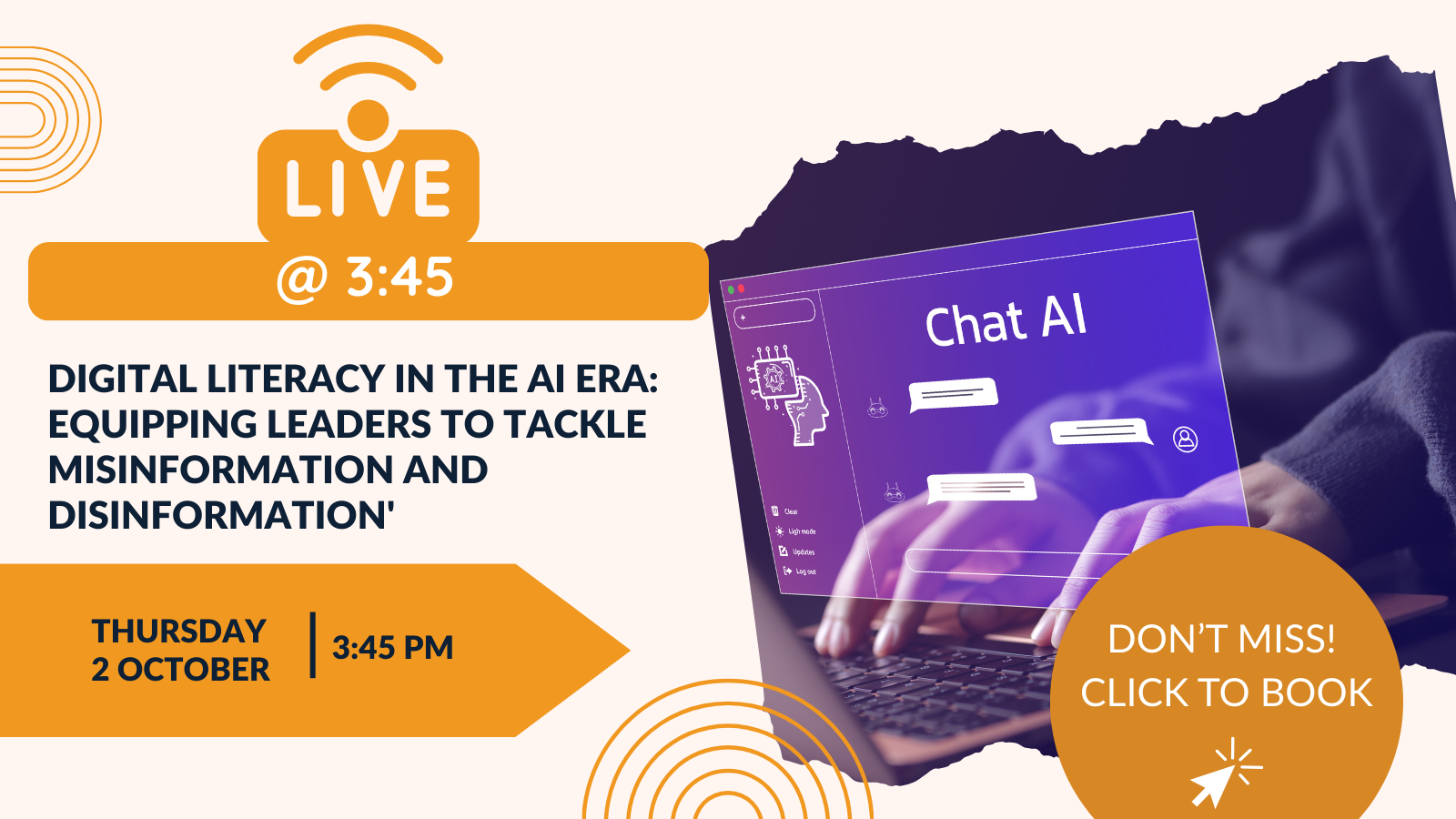
Sofa Sessions | Safeguarding